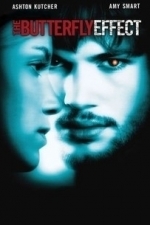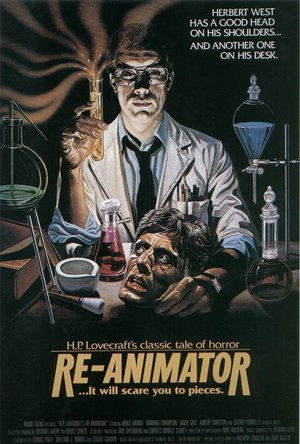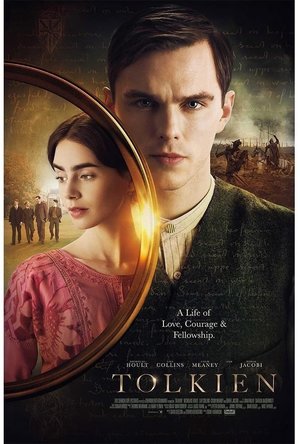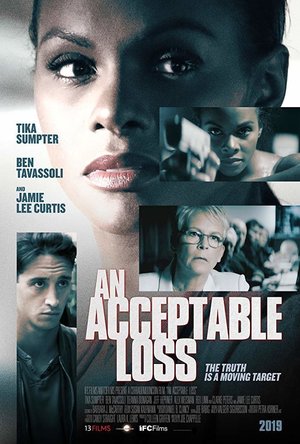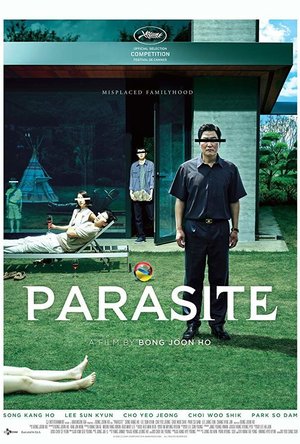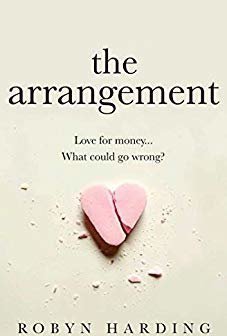Search
Search results
Gareth von Kallenbach (980 KP) rated The Butterfly Effect (2004) in Movies
Aug 14, 2019
For most people, childhood is a time filled mainly with happy memories of carefree playing, a loving family, and counting the days until the next school vacation.
Sadly, not everyone has fond memories of their childhood as for some; the years of joy and laughter are filled with pain and sadness. Such is the case of Evan Treborn (Ashton Kutcher) a gifted and caring individual who suffers from memory lapses much like his institutionalized father before him.
A series of traumatic events occur forcing Evan and his mother to move from their home leaving his best friends Kayleigh and Lenny behind.
Years later Evan is a successful and popular student at the state college and has not had a blackout for seven years, which is about the time his mother, moved him from the old neighborhood. Evan is persuaded by a friend to read his old journal entries and in doing so starts to recover some of his lost memories.
With the understanding that he has blacked out traumatic events in his life, Evan returns to his old home to seek out his friends with the hope that his missing memories can be restored. Sadly Evans return does not go well and his questions cause consequences for those who can remember what exactly happened.
Desperate to make sense of what is happening, Evan studies his journals and discovers that he is able to travel back to the time he has blacked out, and proceeds to make changes that he believes will improve the long-term outcome.
Evan awakens to find himself with Kayleigh (Amy Smart) and learns that the two of them have been an item ever since his childhood. What at first seems like a dream come true soon sours when Evan realizes that the ripple effects from his changes in the past have affected others around him. Desperate to undo a situation that now threatens him as well, Evan begins a series of trips into his past in an effort to recover his memories and right the wrongs that he is slowly starting to remember. Evan soon finds himself in a situation gone wild as no matter what Evan changes in the past, things are not put right as improving things for one person often makes others suffer as a result of the altered history.
Skillfully written and directed by Eric Bress and J Mackye Gruber The Butterfly Effect is a stunning look into a troubled psyche and a study in the effects of childhood trauma. The film is equally gripping and disturbing and tackles a wide-range of controversial topics. There is no sugar coating to the film as the depths of Evans repressed memories are explored making the film one of the best Dramas in recent memory.
Kutcher is amazing as he handles a difficult and complex role with skill and passion showing that he is capable of so much more than the brain dead beefcake roles he has been cast in previously. Kutcher is the key that makes the film work as the entire film and supporting cast center on him and he pulls it off brilliantly. Strong supporting work by Amy Smart, Ethan Suplee, and Eldon Henson keep the film gripping and tense.
The only issue I had with the film was the ending, which seemed to me like a tacked on Hollywood ending and not in keeping with the tone of the film. That being said, “The Butterfly Effect is a strong film and one that will not easily be forgotten.
Sadly, not everyone has fond memories of their childhood as for some; the years of joy and laughter are filled with pain and sadness. Such is the case of Evan Treborn (Ashton Kutcher) a gifted and caring individual who suffers from memory lapses much like his institutionalized father before him.
A series of traumatic events occur forcing Evan and his mother to move from their home leaving his best friends Kayleigh and Lenny behind.
Years later Evan is a successful and popular student at the state college and has not had a blackout for seven years, which is about the time his mother, moved him from the old neighborhood. Evan is persuaded by a friend to read his old journal entries and in doing so starts to recover some of his lost memories.
With the understanding that he has blacked out traumatic events in his life, Evan returns to his old home to seek out his friends with the hope that his missing memories can be restored. Sadly Evans return does not go well and his questions cause consequences for those who can remember what exactly happened.
Desperate to make sense of what is happening, Evan studies his journals and discovers that he is able to travel back to the time he has blacked out, and proceeds to make changes that he believes will improve the long-term outcome.
Evan awakens to find himself with Kayleigh (Amy Smart) and learns that the two of them have been an item ever since his childhood. What at first seems like a dream come true soon sours when Evan realizes that the ripple effects from his changes in the past have affected others around him. Desperate to undo a situation that now threatens him as well, Evan begins a series of trips into his past in an effort to recover his memories and right the wrongs that he is slowly starting to remember. Evan soon finds himself in a situation gone wild as no matter what Evan changes in the past, things are not put right as improving things for one person often makes others suffer as a result of the altered history.
Skillfully written and directed by Eric Bress and J Mackye Gruber The Butterfly Effect is a stunning look into a troubled psyche and a study in the effects of childhood trauma. The film is equally gripping and disturbing and tackles a wide-range of controversial topics. There is no sugar coating to the film as the depths of Evans repressed memories are explored making the film one of the best Dramas in recent memory.
Kutcher is amazing as he handles a difficult and complex role with skill and passion showing that he is capable of so much more than the brain dead beefcake roles he has been cast in previously. Kutcher is the key that makes the film work as the entire film and supporting cast center on him and he pulls it off brilliantly. Strong supporting work by Amy Smart, Ethan Suplee, and Eldon Henson keep the film gripping and tense.
The only issue I had with the film was the ending, which seemed to me like a tacked on Hollywood ending and not in keeping with the tone of the film. That being said, “The Butterfly Effect is a strong film and one that will not easily be forgotten.
Chris Sawin (602 KP) rated Re-Animator (1985) in Movies
Jun 22, 2019
Herbert West is no ordinary doctor. He's brilliant and obviously knows quite a bit about the field of medicine, but something is peculiar about him. He acts strangely and tends to keep to himself while getting absorbed into his work. Throughout his research, Dr. West may have finally perfected his serum. A serum that brings the dead back to life. The consequences of the serum are hectic, as expected. The sooner the serum is injected into a fresh corpse in comparison to one that's been lying around for a few hours, the better the results. Based on the H.P. Lovecraft tale, Herbert West-Reanimator, West finds himself at a medical college when his stint in Switzerland ends a bit abruptly. There he meets Dan Cain, a student at the college who is held in high regard, and Dan's girlfriend, Meg, whose father is the dean to the medical college. When Dan puts a notice up looking for a roommate in his dorm, West comes knocking. Things seem to be a constant downward spiral from there as West continues his research and the bodies begin to pile up.
Re-Animator is one of the few cult classics that I'll stick up for. I usually wind up feeling like most classic horror films that are recommended or held in such high regard aren't good at all or are extremely overrated. This film is a lot of fun though. It's definitely got its campy qualities with a headless corpse stumbling around the third act of the film, but it doesn't feel out of place for a film built around a concoction that's injected into the brain to bring corpses back from the dead. The music, especially the opening theme, tends to get a bad wrap because it blatantly rips off (or pays homage, depending on how you look at it) the Psycho score. While the similarities are crystal clear once they're heard, I honestly didn't mind it. It's kind of hard to imagine this film with different music, so I have no complaints.
The Herbert West role really fits Jeffrey Combs like a glove. His attraction to weird and quirky roles pretty much began with films like this one. As West's unusual personality is revealed throughout the film, you can't help but get a sense of uneasiness as his character traits unravel before your very eyes. The best example is when West brings Dan's cat Rufus back to life. After it's been killed for the second time, Dan is shocked to discover it's Rufus and turns to look at West. West points at the cat and tells Dan to, "Look out!" Dan quickly turns his attention back to poor Rufus, who's still lying there motionless. West begins to burst into maniacal laughter as Dan looks on in horror. With the upcoming remake on the horizon, it's hard to imagine anyone else in the role of Herbert West especially with Jeffrey Combs confirmed for a cameo.
While Re-Animator could definitely be considered cheesy and campy at times, its strengths outweigh its flaws. The story is simple, but tends to unfold nicely and the acting is solid (David Gale as Dr. Hill is up for debate though). The film is pretty much exactly what you would expect a horror film to be like from the eighties; gory, cheesy, tons of nudity and sex, and a few creative twists along the way. And when it comes to horror, what else could you really ask for?
Re-Animator is one of the few cult classics that I'll stick up for. I usually wind up feeling like most classic horror films that are recommended or held in such high regard aren't good at all or are extremely overrated. This film is a lot of fun though. It's definitely got its campy qualities with a headless corpse stumbling around the third act of the film, but it doesn't feel out of place for a film built around a concoction that's injected into the brain to bring corpses back from the dead. The music, especially the opening theme, tends to get a bad wrap because it blatantly rips off (or pays homage, depending on how you look at it) the Psycho score. While the similarities are crystal clear once they're heard, I honestly didn't mind it. It's kind of hard to imagine this film with different music, so I have no complaints.
The Herbert West role really fits Jeffrey Combs like a glove. His attraction to weird and quirky roles pretty much began with films like this one. As West's unusual personality is revealed throughout the film, you can't help but get a sense of uneasiness as his character traits unravel before your very eyes. The best example is when West brings Dan's cat Rufus back to life. After it's been killed for the second time, Dan is shocked to discover it's Rufus and turns to look at West. West points at the cat and tells Dan to, "Look out!" Dan quickly turns his attention back to poor Rufus, who's still lying there motionless. West begins to burst into maniacal laughter as Dan looks on in horror. With the upcoming remake on the horizon, it's hard to imagine anyone else in the role of Herbert West especially with Jeffrey Combs confirmed for a cameo.
While Re-Animator could definitely be considered cheesy and campy at times, its strengths outweigh its flaws. The story is simple, but tends to unfold nicely and the acting is solid (David Gale as Dr. Hill is up for debate though). The film is pretty much exactly what you would expect a horror film to be like from the eighties; gory, cheesy, tons of nudity and sex, and a few creative twists along the way. And when it comes to horror, what else could you really ask for?
Emma @ The Movies (1786 KP) rated Tolkien (2019) in Movies
Jun 22, 2019 (Updated Sep 25, 2019)
Tolkien shows us a snapshot of the author's younger years from orphan to student, from soldier to scholar. I don't know much about his history but I'm familiar with the estate and I was surprised that this went through without their blessing. Not knowing the background I can't say how much is true and how much is artistic license, and sadly in this instance, I'm really not too bothered about finding out. Other biopics have left me with a desire to find out more about the subject matter but this left me rather indifferent about it.
It's not a wildly exciting life story that's captured in the film, what I found more compelling was the way that the creative process was depicted. The way they used visuals to connect everything in his life to his stories was beautifully done. The war scenes are stunning in their simplicity, seeing the colours against the stark backgrounds was incredible and I love how they managed to weave his visions into them. The mist effect was particularly well done.
I love the idea that Tolkien saw all these ideas in what most people would dismiss as life or a trick of the light. At the beginning of the film we see his mother telling the brother a story with the use of a zoetrope. (I'm not sure it's technically a zoetrope, do let me know what it is if I'm wrong.) The way they managed to create the feeling of life in those projections was mesmerising.
I'm quite aware that I haven't mentioned a single member of the cast yet. To be honest, I think I was so engrossed in the visuals that the rest of it was just kind of... there.
I found it difficult to keep track of who was who in his fellowship. I couldn't have told you their names or their individual niches. In fact, near the end I realised I'd got one of their names wrong the entire way through my notes.
Nicholas Hoult isn't an actor I'm particularly excited for in films, he is a consistent performer but I don't think I've seen anything that's wowed me. As Tolkien thought he did bring some surprisingly emotional elements... I definitely hadn't expected to cry at this screening. If I'd have been Edith in the moment where she asks him to tell her a story I'd have fallen in love with him on the spot, it had me leaning in intrigued to see him working everything out.
Visually, the movie is stunning and the feeling it creates is perfect, but everything else in the film felt very non-descript, and a lot of it seemed like it just had a place to make you link it to his writings. Tolkien is more of a nostalgic trip down memory lane than a biopic.
What you should do
The visuals on the big screen were amazing, but I don't think there's enough going on in the rest of the film to warrant a trip to the cinema for it. Try and catch it when it's available on home release though.
Movie thing you wish you could take home
The ability to create a wall of ideas without getting annoyed that nothing was lined up straight.
It's not a wildly exciting life story that's captured in the film, what I found more compelling was the way that the creative process was depicted. The way they used visuals to connect everything in his life to his stories was beautifully done. The war scenes are stunning in their simplicity, seeing the colours against the stark backgrounds was incredible and I love how they managed to weave his visions into them. The mist effect was particularly well done.
I love the idea that Tolkien saw all these ideas in what most people would dismiss as life or a trick of the light. At the beginning of the film we see his mother telling the brother a story with the use of a zoetrope. (I'm not sure it's technically a zoetrope, do let me know what it is if I'm wrong.) The way they managed to create the feeling of life in those projections was mesmerising.
I'm quite aware that I haven't mentioned a single member of the cast yet. To be honest, I think I was so engrossed in the visuals that the rest of it was just kind of... there.
I found it difficult to keep track of who was who in his fellowship. I couldn't have told you their names or their individual niches. In fact, near the end I realised I'd got one of their names wrong the entire way through my notes.
Nicholas Hoult isn't an actor I'm particularly excited for in films, he is a consistent performer but I don't think I've seen anything that's wowed me. As Tolkien thought he did bring some surprisingly emotional elements... I definitely hadn't expected to cry at this screening. If I'd have been Edith in the moment where she asks him to tell her a story I'd have fallen in love with him on the spot, it had me leaning in intrigued to see him working everything out.
Visually, the movie is stunning and the feeling it creates is perfect, but everything else in the film felt very non-descript, and a lot of it seemed like it just had a place to make you link it to his writings. Tolkien is more of a nostalgic trip down memory lane than a biopic.
What you should do
The visuals on the big screen were amazing, but I don't think there's enough going on in the rest of the film to warrant a trip to the cinema for it. Try and catch it when it's available on home release though.
Movie thing you wish you could take home
The ability to create a wall of ideas without getting annoyed that nothing was lined up straight.
Darren (1599 KP) rated An Acceptable Loss (2018) in Movies
Jul 25, 2019
Story: An Acceptable Loss starts as Libby (Sumpter) takes a new job in education, her former career saw her working under the Vice President Rachel (Curtis) being part of a campaign known as ‘Total Victory’ which saw her career change. Libby’s new job shows how she doesn’t have any forms of communication and one of the students Martin (Tavassoli) has taken an extra interest in her life, following her around, spying her on her.
Rachel now being President sends her Chief of Staff Adrian (Hephner) and former lover of Libby to make sure she isn’t going to spill the beans on what happened in this case, all while Libby is trying to make sure she can just get on with her life.
Thoughts on An Acceptable Loss
Characters – Libby once worked for the Vice President on one of the most controversial projects in defence and dealing with potential terrorist against America, she has left this job because of what happened trying to find a new career in education, she wants to stay off the radar with how she lives, which sees her avoid her former colleagues and fellow members of the faculty. Rachel is the former Vice-President, now President who is trying to tie up the loose ends of operation Total Victory, this will see her challenge Libby on whether she will expose the truth of her actions. Martin is a student that has taken an interest in Libby following her around spying on her looking for some kind of answer. Adrian is the Chief of Staff and former lover of Libby’s, he has been assigned to keep Libby quiet.
Performances – Tika Sumpter does give us a strong performance, we do see how her guilt is controlling her life, while showing how she will do what she can to fix her mistake. Jamie Lee Curtis is the star of the film because every time she is on camera we seeing everything upped to the next level. Ben Tavassoli and Jeff Hepnher both complete the main cast and both do a solid enough role.
Story – The story follows a former staff worker for the Vice President and one of the major parts of a project which saw many people killed, she has moved on with her life away from politics, hoping to one day tell the truth against the now current President. This story is a heavy political set up which shows us just how they will do anything to cover up any secrets, the story does jump around between the two times and careers that Libby has which does just come and go way to often. The problem with this story comes from the fact this could have been a lot more intense because of the subject matter we are going into.
Thriller – The could be a thriller that is truly one of the most intense movies of the year, because the subject could have been showing bigger consequences instead of a couple of friendly conversations.
Settings – The film is set in the everyday location, it shows how easy it could be to get people coming after somebody who might hold a secret.
Scene of the Movie – Jamie Lee Curtis scenes.
That Moment That Annoyed Me – It does become very predictable.
Final Thoughts – This is a predictable thriller that does tackle a bigger subject matter that goes through cover ups, we are saved by Jamie Lee Curtis scene stealing performance.
Overall: Predictable, through entertaining.
Rachel now being President sends her Chief of Staff Adrian (Hephner) and former lover of Libby to make sure she isn’t going to spill the beans on what happened in this case, all while Libby is trying to make sure she can just get on with her life.
Thoughts on An Acceptable Loss
Characters – Libby once worked for the Vice President on one of the most controversial projects in defence and dealing with potential terrorist against America, she has left this job because of what happened trying to find a new career in education, she wants to stay off the radar with how she lives, which sees her avoid her former colleagues and fellow members of the faculty. Rachel is the former Vice-President, now President who is trying to tie up the loose ends of operation Total Victory, this will see her challenge Libby on whether she will expose the truth of her actions. Martin is a student that has taken an interest in Libby following her around spying on her looking for some kind of answer. Adrian is the Chief of Staff and former lover of Libby’s, he has been assigned to keep Libby quiet.
Performances – Tika Sumpter does give us a strong performance, we do see how her guilt is controlling her life, while showing how she will do what she can to fix her mistake. Jamie Lee Curtis is the star of the film because every time she is on camera we seeing everything upped to the next level. Ben Tavassoli and Jeff Hepnher both complete the main cast and both do a solid enough role.
Story – The story follows a former staff worker for the Vice President and one of the major parts of a project which saw many people killed, she has moved on with her life away from politics, hoping to one day tell the truth against the now current President. This story is a heavy political set up which shows us just how they will do anything to cover up any secrets, the story does jump around between the two times and careers that Libby has which does just come and go way to often. The problem with this story comes from the fact this could have been a lot more intense because of the subject matter we are going into.
Thriller – The could be a thriller that is truly one of the most intense movies of the year, because the subject could have been showing bigger consequences instead of a couple of friendly conversations.
Settings – The film is set in the everyday location, it shows how easy it could be to get people coming after somebody who might hold a secret.
Scene of the Movie – Jamie Lee Curtis scenes.
That Moment That Annoyed Me – It does become very predictable.
Final Thoughts – This is a predictable thriller that does tackle a bigger subject matter that goes through cover ups, we are saved by Jamie Lee Curtis scene stealing performance.
Overall: Predictable, through entertaining.
Gareth von Kallenbach (980 KP) rated Isle of Dogs (2018) in Movies
Jul 8, 2019
When an outbreak of “dog-flu” and other dog diseases ravish Japan. Mayor Kobayashi (Kunichi Nomura voice) signs an order to banish all dogs to Trash Island, aka the Isle of Dogs. The island is now home to thousands of dogs who are all scavenging for food. Groups of dogs’ band together to fight for scraps of trash and survive. Then all one day a plane crashes on the island. A boy, Atari (Koyu Rankin voice), has come to the island to find his dog best friend Spots (Liev Schreiber voice). Five dogs find Atari injured buy the crash. The lone stray in the group, Chief (Bryan Cranston voice), has no use for masters and wants to leave the boy. But the rest of the group, Rex (Edward Norton voice), King (Bob Balaban voice), Duke (Jeff Goldblum voice) and Boss (Bill Murray voice) all want help the boy find his best friend. Out voted by the domesticated dogs in the group Chief agrees and they set out on a journey to find Atari’s lost dog on an island full of dogs.
This stop-motion animated film is the latest written and directed film by Wes Anderson (Fantastic Mr. Fox, Moonrise Kingdom, and The Royal Tenenbaums). Anderson’s unique film style and dialog are very present in this Japanese based tale. The stop motion animation is very well done and highlighted throughout the film. From the dogs’ hair moving with the animals to flower petals floating through the air the small details are not missed and expertly done. The dialog was also very much staying with Andersons unique style. It is fast paced and full of subtle comedy. The story is original and fun but also full of meaning and heart. The star studded cast does well in providing their voices to the animated film. The sound track really fits the film well.
The film was not without its struggles. At the beginning of the film it was pointed out that the humans would speak their native language, in most cases Japanese, and the dogs barks had been translated to English. This provides some fun moments throughout the film as there are translators to press conferences and the dog interpreting what the humans say to other dogs. But at times it seemed to me that the humans could understand what the dogs were saying, barking. So it was a little inconsistent. Also one character put into the movie presumably to aid in translation in the film as an American exchange student, Tracy Walker (Greta Gerwig voice). Other than translating parts of the film I don’t know why this character had to be American and could not have been Japanese. It definitely helped the overall theme of the movie to have her there to describe what was happening, given the fact there were no subtitles, but did seem a little forced.
I am definitely a fan of Wes Anderson’s film making and one of a kind style. That comes with certain expectations, which in this case were met. But I also understand that as someone reviewing the film it may make me a little bias. As noted above there a few minor issues I had with the film in general but overall I enjoyed the film and thing fans of Anderson will not be disappointed and neither will those who are just looking for a fun movie. I think overall this is a beautifully made and fun film.
This stop-motion animated film is the latest written and directed film by Wes Anderson (Fantastic Mr. Fox, Moonrise Kingdom, and The Royal Tenenbaums). Anderson’s unique film style and dialog are very present in this Japanese based tale. The stop motion animation is very well done and highlighted throughout the film. From the dogs’ hair moving with the animals to flower petals floating through the air the small details are not missed and expertly done. The dialog was also very much staying with Andersons unique style. It is fast paced and full of subtle comedy. The story is original and fun but also full of meaning and heart. The star studded cast does well in providing their voices to the animated film. The sound track really fits the film well.
The film was not without its struggles. At the beginning of the film it was pointed out that the humans would speak their native language, in most cases Japanese, and the dogs barks had been translated to English. This provides some fun moments throughout the film as there are translators to press conferences and the dog interpreting what the humans say to other dogs. But at times it seemed to me that the humans could understand what the dogs were saying, barking. So it was a little inconsistent. Also one character put into the movie presumably to aid in translation in the film as an American exchange student, Tracy Walker (Greta Gerwig voice). Other than translating parts of the film I don’t know why this character had to be American and could not have been Japanese. It definitely helped the overall theme of the movie to have her there to describe what was happening, given the fact there were no subtitles, but did seem a little forced.
I am definitely a fan of Wes Anderson’s film making and one of a kind style. That comes with certain expectations, which in this case were met. But I also understand that as someone reviewing the film it may make me a little bias. As noted above there a few minor issues I had with the film in general but overall I enjoyed the film and thing fans of Anderson will not be disappointed and neither will those who are just looking for a fun movie. I think overall this is a beautifully made and fun film.
Bob Mann (459 KP) rated Parasite (2019) in Movies
Feb 9, 2020
It’s so metaphorical.
Everyone said “Go see Parasite”. Everyone said “The one rule about Parasite is that you don’t talk about Parasite”. So I went to see Parasite. So this is a review about Parasite without talking about Parasite.
Kim Ki-Woo (Woo-sik Choi) is a student living with his family in poverty in a sub-basement room, sponging off internet signals and scrounging a living, of sorts, by assembling pizza boxes. Opportunity presents itself when his best friend, the slightly older Min (Seo-joon Park), goes abroad to study. For Min is an English tutor to the up-market Park family’s school-age daughter Da-hye (Ji-so Jung). Not wanting his fellow ‘frat-boys’ to move in on future romance – he’s lined up Ki-Woo as his replacement.
Ki-woo knows he’s lucked in when he visits the swanky Park residence and manages to pull the wool over the eyes of Da-hye’s not too bright mother Yeon-kyo (Yeo-jeong Jo). But the influence of the family’s “lucky rock” doesn’t stop there. Ki-woo sees an opportunity to get jobs for his sister Kim (So-dam Park), his father Ki-taek (Kang-ho Song) and his mother Chung-sook (Hye-jin Jang). And gradually the poor Kim family start to encroach on the rich Park family’s lives.
You might think that’s the story. It’s not. Just when you think you know where the film is going – a gentle comic tale with farcical elements – the movie takes a sudden left turn into The Twilight Zone.
To say more, if you’ve not seen the film, would be cruelty beyond measure. It’s a truly astonishing script, by writer/director Bong Joon Ho, and my nomination for the Oscar for best original screenplay.
It’s the details that get to you. This will be a superb film to watch multiple times. There are fabulous details scattered throughout. You know how the more expensive the car the more “solid” the clunk is as you shut the door? Listen to the sound effect when the Park front door shuts! Look what happens to the “one of a kind” lucky rock!
As for one of my favourite films from last year – “The Farewell” – you very quickly get to accept and embrace the subtitles. YOU MUST NOT LET THIS PUT YOU OFF. This is a masterpiece of cinema, well-deserving of its multiple Oscar nominations and its Cannes Palme d’Or award. At 132 minutes, it’s not a short film, but seldom have two hours flown by faster. It’s totally gripping. At times hysterically funny; at times shocking. A class struggle movie of a calibre that Ken Loach would never have imagined!
Gripes? I had just one. An action near the end of the movie seems bizarrely out of character and was a “WTF” moment that I didn’t think the film needed. However, it did set up a wonderful story-telling finale that I will think about for many months.
It provoked that seldom found reaction in the cinema when the end-titles ran. A hubbub of chatter and appreciation.
It comes with a highly recommended from me.
For the full graphical review, check out https://bob-the-movie-man.com/2020/02/09/one-manns-movies-film-review-parasite-2020/.
Kim Ki-Woo (Woo-sik Choi) is a student living with his family in poverty in a sub-basement room, sponging off internet signals and scrounging a living, of sorts, by assembling pizza boxes. Opportunity presents itself when his best friend, the slightly older Min (Seo-joon Park), goes abroad to study. For Min is an English tutor to the up-market Park family’s school-age daughter Da-hye (Ji-so Jung). Not wanting his fellow ‘frat-boys’ to move in on future romance – he’s lined up Ki-Woo as his replacement.
Ki-woo knows he’s lucked in when he visits the swanky Park residence and manages to pull the wool over the eyes of Da-hye’s not too bright mother Yeon-kyo (Yeo-jeong Jo). But the influence of the family’s “lucky rock” doesn’t stop there. Ki-woo sees an opportunity to get jobs for his sister Kim (So-dam Park), his father Ki-taek (Kang-ho Song) and his mother Chung-sook (Hye-jin Jang). And gradually the poor Kim family start to encroach on the rich Park family’s lives.
You might think that’s the story. It’s not. Just when you think you know where the film is going – a gentle comic tale with farcical elements – the movie takes a sudden left turn into The Twilight Zone.
To say more, if you’ve not seen the film, would be cruelty beyond measure. It’s a truly astonishing script, by writer/director Bong Joon Ho, and my nomination for the Oscar for best original screenplay.
It’s the details that get to you. This will be a superb film to watch multiple times. There are fabulous details scattered throughout. You know how the more expensive the car the more “solid” the clunk is as you shut the door? Listen to the sound effect when the Park front door shuts! Look what happens to the “one of a kind” lucky rock!
As for one of my favourite films from last year – “The Farewell” – you very quickly get to accept and embrace the subtitles. YOU MUST NOT LET THIS PUT YOU OFF. This is a masterpiece of cinema, well-deserving of its multiple Oscar nominations and its Cannes Palme d’Or award. At 132 minutes, it’s not a short film, but seldom have two hours flown by faster. It’s totally gripping. At times hysterically funny; at times shocking. A class struggle movie of a calibre that Ken Loach would never have imagined!
Gripes? I had just one. An action near the end of the movie seems bizarrely out of character and was a “WTF” moment that I didn’t think the film needed. However, it did set up a wonderful story-telling finale that I will think about for many months.
It provoked that seldom found reaction in the cinema when the end-titles ran. A hubbub of chatter and appreciation.
It comes with a highly recommended from me.
For the full graphical review, check out https://bob-the-movie-man.com/2020/02/09/one-manns-movies-film-review-parasite-2020/.
Kristy H (1252 KP) rated The Arrangement in Books
Aug 5, 2019
Twenty-one-year-old Natalie gratefully escaped her small-town life in Washington state, including an obsessive ex-boyfriend who broke into her house when she told him she was leaving for art school in New York City. But now the glamorous life she dreamed of is anything but: even with a partial scholarship, she's struggling to pay her tuition and rent. So when her friend tells her of a possible solution--go online and find an older sugar daddy: a wealthy man who pays her for dates--Natalie is intrigued. She figures it is a temporary solution until she gets back on her feet. But then she meets Gabe Turnmill, a handsome lawyer, more than thirty years older her senior. Soon she's madly in love with Gabe, who gives her a monthly allowance and helps her find her own apartment. But Gabe has his own family and life, and when he ends things with Natalie, she's devastated, unable to let things go. She begins stalking Gabe and his family. Gabe is a powerful man, however, and he's not going to let his sugar baby ruin his life.
Wow, this book was utterly captivating! I totally loved HER PRETTY FACE, and I felt the same about this one! This novel starts out with Natalie calling her long-estranged father, who abandoned her family when she was ten. "I killed someone," she says. From there, we flash back four months, learning more about Natalie's life as an art student and how she winds up as a sugar baby. It's utterly fascinating--learning about this life and how Natalie becomes tied up in it. She's convinced she will only go on a couple of dates, but her life becomes a series of unfortunate incidents. Then she falls for Gabe.
"But this was not a real relationship. Gabe was paying her. Now, Nat was afraid of falling for a man she could never really have."
The characters in this book are spot-on. Talk about creepy, obsessive, and utter trainwrecks. These two are so messed up. And I loved them! I could not put this book down! I picked it up on Sunday afternoon and had to finish it Sunday night before I went to bed. I simply could not look away from Natalie and Gabe and their absolutely bizarre relationship.
"Gabe liked situations he could control, people he could manage."
This book is a crazy mix of thriller, mystery, and romantic suspense. It's really interesting to think that these sugar baby/daddy relationships actually exist (hopefully without some of the other insanity that occurs in this book). Harding does such a wonderful job with her main characters and their utterly twisted minds. The point of view switches between the two, and we hear from some of the supporting cast, too. It helps up the drama and suspense, for sure. New York City is a great backdrop for all that goes down. I sort of had an inkling how it would all play out near the end, but I definitely couldn't put the book down.
Overall, totally loved this one. Definitely one of my favorite thrillers this year--just a really fun, captivating book with a different storyline and awesome, crazy characters. 4.5 stars.
Wow, this book was utterly captivating! I totally loved HER PRETTY FACE, and I felt the same about this one! This novel starts out with Natalie calling her long-estranged father, who abandoned her family when she was ten. "I killed someone," she says. From there, we flash back four months, learning more about Natalie's life as an art student and how she winds up as a sugar baby. It's utterly fascinating--learning about this life and how Natalie becomes tied up in it. She's convinced she will only go on a couple of dates, but her life becomes a series of unfortunate incidents. Then she falls for Gabe.
"But this was not a real relationship. Gabe was paying her. Now, Nat was afraid of falling for a man she could never really have."
The characters in this book are spot-on. Talk about creepy, obsessive, and utter trainwrecks. These two are so messed up. And I loved them! I could not put this book down! I picked it up on Sunday afternoon and had to finish it Sunday night before I went to bed. I simply could not look away from Natalie and Gabe and their absolutely bizarre relationship.
"Gabe liked situations he could control, people he could manage."
This book is a crazy mix of thriller, mystery, and romantic suspense. It's really interesting to think that these sugar baby/daddy relationships actually exist (hopefully without some of the other insanity that occurs in this book). Harding does such a wonderful job with her main characters and their utterly twisted minds. The point of view switches between the two, and we hear from some of the supporting cast, too. It helps up the drama and suspense, for sure. New York City is a great backdrop for all that goes down. I sort of had an inkling how it would all play out near the end, but I definitely couldn't put the book down.
Overall, totally loved this one. Definitely one of my favorite thrillers this year--just a really fun, captivating book with a different storyline and awesome, crazy characters. 4.5 stars.
Darren (1599 KP) rated Night School (2018) in Movies
Aug 6, 2019
Story: Night School starts when high school dropout Teddy (Hart) sees his future go up in smoke right after proposing to his beautiful successful girlfriend Lisa (Echikunwoke) seeing his job vanish and his future employment needing a GED, this forces Teddy to return to high school for a night school.
The former class enemy is now the principal Stewart (Killam) and doesn’t want Teddy in the class, he must prove to the teacher Carrie (Haddish) that he wants to study, while keeping his struggles a secret from Lisa, which sees him becoming friends with the rest of the class to pass.
Thoughts on Night School
Characters – Teddy has been working in sales working off each pay check to look like he has been living a better life, he has a successful beautiful girlfriend, his life changes when he career goes up in smoke and his failure to complete high school is holding him back in searching for a new job. He tries night school, which sees him needing to challenge himself instead of trying to get through quickly. Carrie is a teacher of the night school, she doesn’t take anything from any student, though she is committed to helping people learn. Even if her methods might finally get through to Teddy. Mackenzie and Jaylen are two of the members of the class that are trying to get their education too, with their own stories.
Performances – Kevin Hart does fall back into his normal routine where he tries to throw more of his comedy into a role, rather than showing us a real character, with real problems that should be taken a lot more seriously. Tiffany Haddish continues to show she is great at the fast-taking jokes, but this doesn’t work for the character. The supporting performance are all mostly comedians trying to get their jokes out too.
Story – The story follows a high school dropout that needs to get his GED so he can find a new job to continue living his life of luxury and keep his girlfriend, only this becomes more difficult than he could ever imagine. This is a poorly used story which could address a much bigger issue in education, where the students can suffer with learning disabilities and not get the help needed, it seems to focus on making a joke out of trying to better yourself instead of using the real issues that are meant to be giving these people more of a chance in the future. Even though it might not use this in the final part of the film, it also tries to paint the idea that you could only have a beautiful partner if you are successful. By showing education being a joke for Teddy it doesn’t help anybody that has ever struggled with education before and in the end this does just feel like a stand up routine instead of an actual story.
Comedy – If you want to see fast flowing jokes which feels more like a stand-up routine so if you like that you will get on with this film.
Settings – The film does use the high school settings to show where the learning was coming from and the low paying job that Teddy must take just to make ends meet.
Scene of the Movie – Graduation.
That Moment That Annoyed Me – The comedy.
Final Thoughts – This is a comedy that just misses on the fact the story should be taken a lot more seriously, sadly this could have elevated this film to a new level.
Overall: Unfunny comedy.
The former class enemy is now the principal Stewart (Killam) and doesn’t want Teddy in the class, he must prove to the teacher Carrie (Haddish) that he wants to study, while keeping his struggles a secret from Lisa, which sees him becoming friends with the rest of the class to pass.
Thoughts on Night School
Characters – Teddy has been working in sales working off each pay check to look like he has been living a better life, he has a successful beautiful girlfriend, his life changes when he career goes up in smoke and his failure to complete high school is holding him back in searching for a new job. He tries night school, which sees him needing to challenge himself instead of trying to get through quickly. Carrie is a teacher of the night school, she doesn’t take anything from any student, though she is committed to helping people learn. Even if her methods might finally get through to Teddy. Mackenzie and Jaylen are two of the members of the class that are trying to get their education too, with their own stories.
Performances – Kevin Hart does fall back into his normal routine where he tries to throw more of his comedy into a role, rather than showing us a real character, with real problems that should be taken a lot more seriously. Tiffany Haddish continues to show she is great at the fast-taking jokes, but this doesn’t work for the character. The supporting performance are all mostly comedians trying to get their jokes out too.
Story – The story follows a high school dropout that needs to get his GED so he can find a new job to continue living his life of luxury and keep his girlfriend, only this becomes more difficult than he could ever imagine. This is a poorly used story which could address a much bigger issue in education, where the students can suffer with learning disabilities and not get the help needed, it seems to focus on making a joke out of trying to better yourself instead of using the real issues that are meant to be giving these people more of a chance in the future. Even though it might not use this in the final part of the film, it also tries to paint the idea that you could only have a beautiful partner if you are successful. By showing education being a joke for Teddy it doesn’t help anybody that has ever struggled with education before and in the end this does just feel like a stand up routine instead of an actual story.
Comedy – If you want to see fast flowing jokes which feels more like a stand-up routine so if you like that you will get on with this film.
Settings – The film does use the high school settings to show where the learning was coming from and the low paying job that Teddy must take just to make ends meet.
Scene of the Movie – Graduation.
That Moment That Annoyed Me – The comedy.
Final Thoughts – This is a comedy that just misses on the fact the story should be taken a lot more seriously, sadly this could have elevated this film to a new level.
Overall: Unfunny comedy.

ACCUPLACER Test Prep!
Education and Reference
App
ACCUPLACER TestBank is on Sale! (Lifetime access - No subscription) "Here's How You Can Beat The...

IELTS Test Questions - English Language Prep
Education and Reference
App
*** British Council Promo - IELTS TestBank is 100% FREE to download & test drive for 7 days. ...
